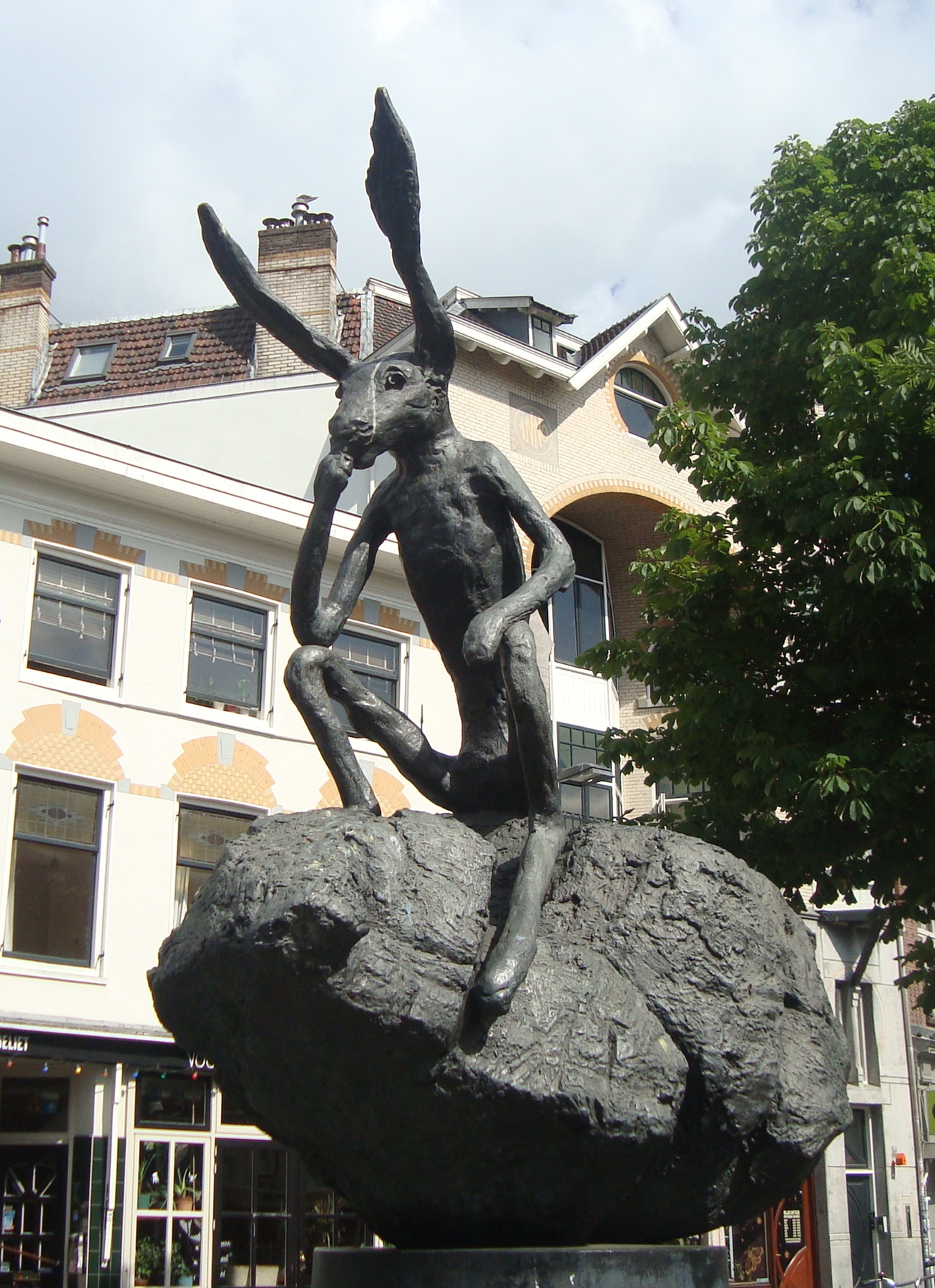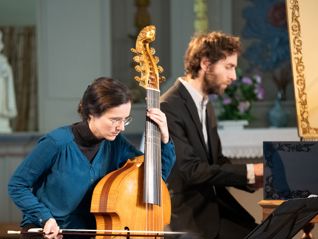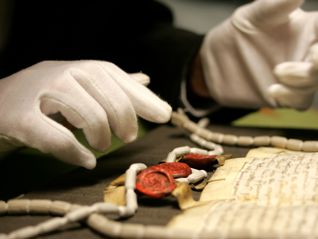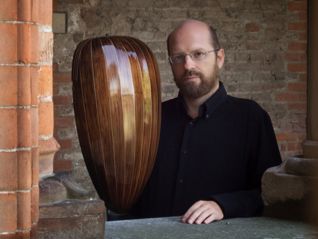Wake-up Service, 1 September 2025
Welcome to day 4! Today the Concert Camper is once again parked on the Neude, right in the heart of the city. Drop by and see a free 20-minute concert!
Recap
Yesterday we enjoyed, among other things, the breathtaking coloraturas of sopranista Maayan Licht with ensemble BREZZA. Paul Schnabel explored the interplay between politics and the performing arts in his Early Music Museum Lecture. And don't forget that you can rewatch concerts on EMTV: Dionysos Now! performing Pierre de la Rue’s Missa Alleluia, and the sold-out concert by Michele Pasotti and La Fonte Musica, who accompanied Orpheus on his journey to the underworld in Monteverdi’s L’Orfeo.
The dream of the viola da gamba player
Today Myriam Rignol takes a remarkable step: she embarks on the complete performance of the Forqueray family’s oeuvre, presented across two concerts. For any viol player this is the ultimate dream, but also an almost dizzying challenge.
In these concerts we hear everything that has survived under the Forqueray name. Most of it is likely the work of Antoine Forqueray (1672–1745), one of the last great virtuosos of the viola da gamba. Yet authorship is not always clear, as many pieces were published by Antoine’s son Jean-Baptiste, who also added his own contributions.
What is beyond all doubt, however, is the power of this music. Rignol draws us into a universe of passion, subtlety, and baroque brilliance – a rare adventure in the literature of the viola da gamba.
Artwork of the Day
With the Artwork of the Day we connect a work of art to one of the concert programmes. Sometimes the link is obvious, sometimes surprising or unexpected. Today’s choice is a true Utrecht landmark: Barry Flanagan’s Thinker on a Rock (1997).

Anyone who has passed through the Neude in the past twenty years will have noticed him: a bronze hare perched high on a rock, paws tucked beneath him, long ears sharply pricked. He has stood here since 2002, though his arrival was not without debate. The sculpture was created in 1997, but the Utrecht city council argued fiercely over whether and where it belonged in the city. A public referendum finally tipped the balance, and since then the hare has been fully embraced. In the cold winter months he is sometimes given a scarf, as if he were a fellow townsman.
At first sight Thinker on a Rock seems like a joke – a witty nod to Rodin’s famous Thinker – but it carries more. This animal suddenly appears conscious of its own existence: a being that thinks, dreams, and perhaps even philosophises.
That is what makes this sculpture so fascinating: with its human qualities it becomes a mirror of ourselves. For centuries, stories have used animals to embody our feelings, desires, and fears. In that tradition we can also place the concert by L’Arpeggiata, Christina Pluhar, and Malena Ernman. Terra Mater is a collection of songs about faithful and sorrowful nightingales, chivalrous frogs, and shy mice. Playful and humorous, yes, but they also reflect our own actions and emotions.
If Thinker on a Rock has never caught your eye before, today is the perfect day to stop by the Neude and take a look. And why not combine it with a visit to the Concert Camper, over which the hare keeps watch today?
The curious case of curation
Starting today: Casus Cureren. At the Paushuize, over the next five days, experts from various fields connected to early music will share what their curatorial role involves. Today: radio producer Sander Zwiep from NPO Klassiek. Later this week, the series continues with Ashley Bourgoyne on AI, Merlijn Kerkhof on reviewing, Olga Pashchenko on curating as a musician, and Jan de Winne on curating as a record label.
Tip from the Team: La Fonte Musica
Even for the people behind the scenes, Festival Oude Muziek Utrecht is a highlight every year. And they're happy to share their tips! Today’s tip comes from Inge, EMTV’s marketing specialist:
"Last spring, I had the privilege of witnessing this wonderful programme by La Fonte Musica during a sunny trip to Seville. Now Michele Pasotti and his ensemble are bringing their reconstruction of the premiere of Monteverdi’s Combattimento (1624) to Utrecht, and believe me: you don’t want to miss the contrast between the solemn madrigals of the first act and the vibrant musical theatre of the second. I, for one, will definitely be in the audience again."
View more tips from the team: www.oudemuziek.nl/tips
Also on today's programme...
…Vivaldi’s Four Seasons, but with a unique twist arranged by Chédeville, performed by Tobie Miller on the hurdy-gurdy. Graindelavoix will also be cracking open several Wunderkammers, while Anna-Liisa Eller introduces us to the kannel, a traditional Estonian instrument.
View the festival programmeToday on EMTV
Catch Cantoría, the third ensemble in the Koorboek van Margaretha van Oostenrijk-series, performing Pierre de La Rue’s Missa Ave Maria. And don’t miss L’Arpeggiata with Christina Pluhar at 20:00 hrs! Together with the renowned Swedish soprano – who, by the way, is also a former Eurovision contestant (2009) and mother of Greta Thunberg – the musicians present an ode to Mother Nature and the animal kingdom.
Did you know that...
early music enthusiasts will become part of today’s festival programme? Under the direction of tenor Tore Tom Denys (of Dionysos Now!), sixty amateur singers are rehearsing sixteenth-century songs and mass movements by Philippe Verdelot, Juan Escribano, Andreas de Silva, and Jacques Arcadelt. Come and listen to the results for free at 16:15 hrs in the K.F. Hein Foyer at TivoliVredenburg!








